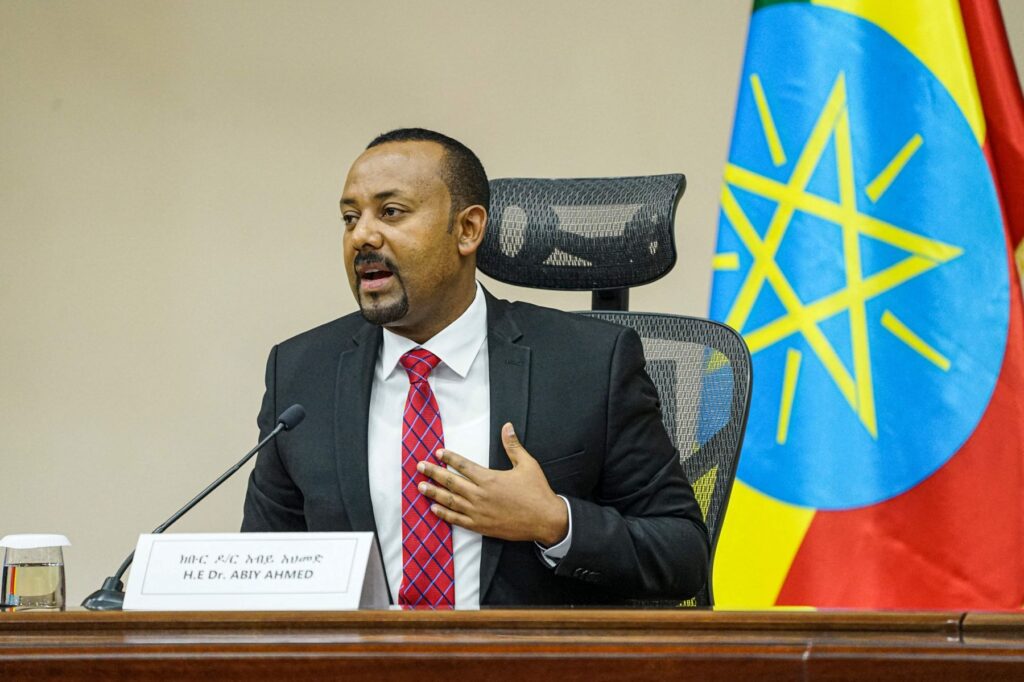Prime Minister Abiy Ahmed has said that securing access to the Red Sea is vital for Ethiopia’s survival, warranting thorough and careful discussion.
The topic of Red Sea access has come under scrutiny following the Prime Minister’s briefing to members of the House of People’s Representatives in a televised session.
In 1993, following Eritrea’s independence from Ethiopia, one of Africa’s largest countries lost its direct access to the Red Sea. Since then, the country has relied on the port of Djibouti, a neighboring small country, for imports and exports.
“The Red Sea and the Nile are intimately linked to Ethiopia, serving as the pillars that could either propel the country’s progress or lead to its demise,” Abiy said.
While the Prime Minister’s speech is not explicitly directed towards Eritrea, many are voicing concerns that it could potentially strain the recently improved relations between the two countries.
The Eritrean government has not issued an official response to Abiy’s statement but the Eritrean ambassador to Japan, Estifanos Afeworki, wrote on Twitter saying that “There is no if and but about Eriitrea’s sovereignty and territorial integrity. No amount of illegitimate instigation, propaganda, conspiracy, and defamation can change this truth.”
The Prime Minister emphasized Ethiopia’s crucial position as a major water source for neighboring countries, citing rivers originating in the country that flow into various neighboring territories. He also mentioned that a pipeline linking Djibouti and Ethiopia had been constructed at Ethiopia’s expense, adding that none of the neighboring countries provide water to Ethiopia, yet every one of them are beneficiaries.
“Declaring ‘I will take yours, but I won’t give you mine’ is not appropriate. Ethiopia, indeed, has every right to pursue access to the Red Sea and the Indian Ocean,” Abiy asserted.
“When we had access to the Red Sea, we were one of the great powers,” the prime minister remarked, emphasizing that “gaining access to the sea should not come at the cost of bloodshed and conflict.”
In return, Abiy expressed his country’s interest in offering shares from the Renaissance Dam, Ethiopian Airlines, and Ethiotelecom. He stated, “When we propose sharing the benefits of the Renaissance Dam, it’s not merely an idea, we have calculated it. It yields substantial returns,” he said.
“We must address this today to prevent future generations from resorting to conflict. This can be achieved through discussions on investment options, shares, and leases. However, dismissing it entirely as a topic of conversation is a mistake,” he emphasized.
Abiy highlighted that port charges are exceedingly high for the country, noting that this amount of money could be used to build the Renaissance Dam every three years.
“We’re not insisting on Massawa or Assab specifically. What we seek is an accessible gateway. However it may materialize—be it through purchase, leasing, or any mutual arrangement—that’s our objective,” the prime minister stated.
He continued, “If we don’t find an alternative through dialogue, discussion today… It could be dangerous,” he cautioned, but he emphasized that Ethiopia’s pursuit of sea access should be conducted peacefully.
Source: Ethiopia Observer


